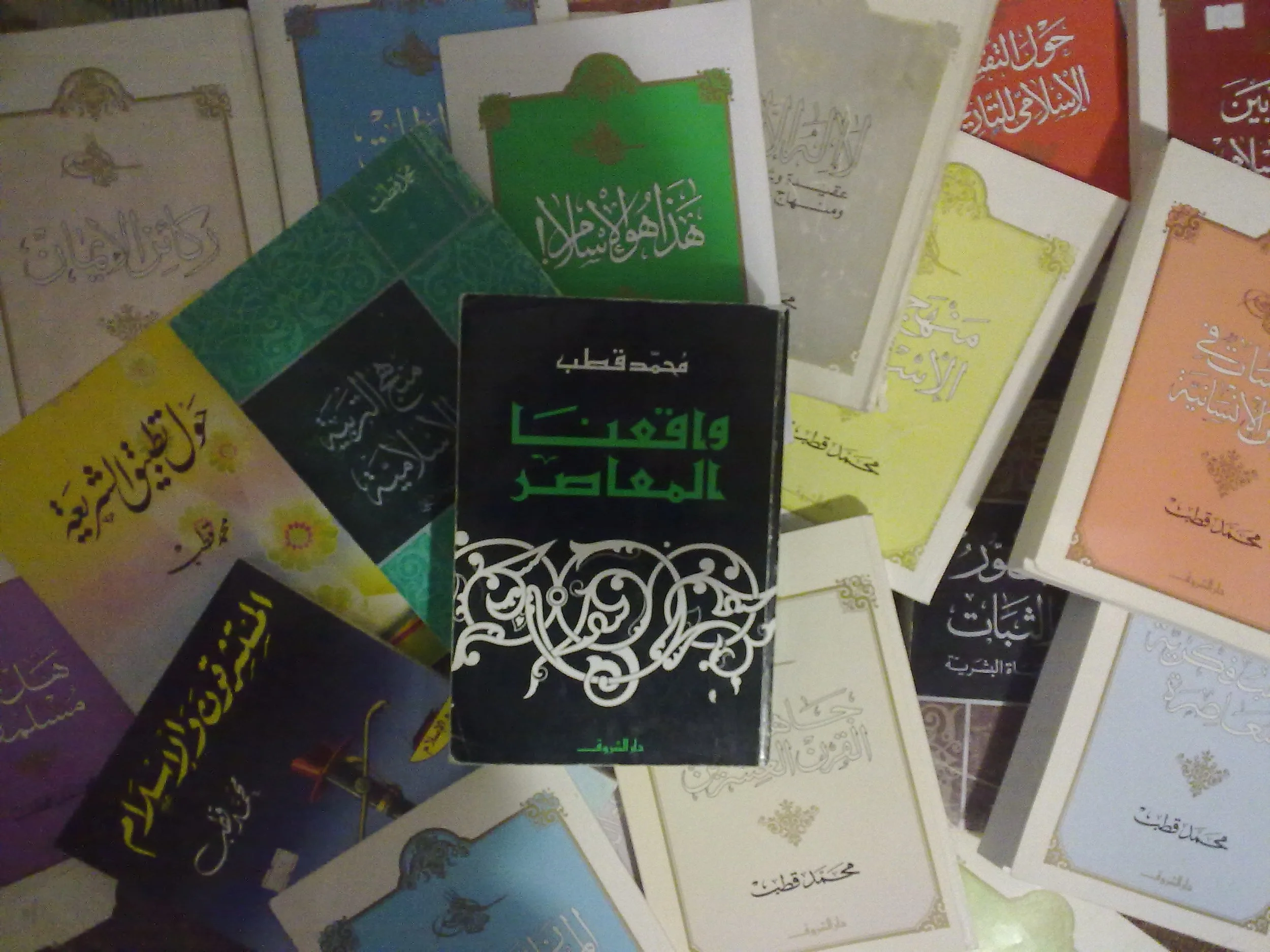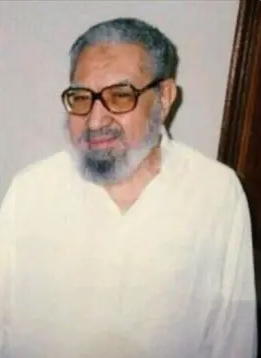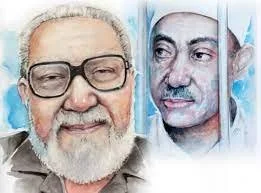The Theology of Terror: Muhammad Qutb and the Rise of Global Jihad
This project will refocus scholarly understandings of Islamism within religious studies by taking seriously the pedagogy of Muhammad Qutb as the key force in the rise of jihadist movements in the Gulf. With the start of the 1979 fall semester at King Abdulaziz University, Saudi Arabia, a young Osama Bin Laden took his seat in a packed auditorium to attend a popular lecture series on theology. The lights dimmed, the crowed hushed, and a professor walked to the podium. Unknown to Bin Laden, the man behind the lectern would forever alter his worldview. Muhammad Qutb (1919-2014) was more than an outstanding orator, author, and Muslim Brotherhood member. Through weekly public lectures and private theological instruction, he instilled in Bin Laden the urge to defend Islam violently and at all costs. Qutb’s religious zeal motivated Bin Laden and his fellow classmates to found international organizations to conduct jihad wherever Muslim peoples were in danger – Palestine, Chechnya, Afghanistan, and the Global North. Although Bin Laden’s hand wielded the sword that committed global terrorism, the crucible of Muhammad Qutb’s fiery rhetoric, canonical interpretations, and juridical rulings forged the weapon. Yet, Muhammad Qutb’s influence on contemporary jihadists remains ignored and virtually absent from the historiography of Islamist thought.
Muhammad Qutb’s thirty-five monographs have ensured the endurance of his dogmatic theological interpretations of Islamic scripture and jurisprudence. We need look no further than the Dark Web to find a new generation of radicalized youth who distribute and venerate his works on Daesh (Islamic State) recruitment sites. These sites have radicalized Canadians like Farah Mohamed Shirdon, who left his home in Calgary to fight for the Islamic State, citing the work of Muhammad Qutb as his inspiration. Drawing on Arabic-language journalism, historical literature, jihadi magazines, Qutb’s lectures, and his sermons, available online and on cassette tapes, as well as his personal papers, I will explore his influence over a generation of international Islamist fighters through his pedagogical and curricular reform, in addition to the role that his work continues to play in the online racialization of marginalized Muslim communities in Canada and abroad.
My project therefore involves three main components: (1) I will compare Qutb’s canonical commentaries and juridical rulings with those of his contemporaries in order to explain the inordinate impact of his scholarship on global Islamic discourse. (2) I will contextualize his work among his network of Egyptian Muslim Brotherhood fugitives turned bureaucrats who shifted Saudi public opinion toward promoting a more socially conservative civil society. And (3) I will document his lasting influence within radical online Islamic networks. As a result, I can better understand and more thoroughly explain contemporary Islamism to both the public and policy makers as well as to scholars and students.
Following Qutb’s release from prison in 1971, due to his ties with the Egyptian Muslim Brotherhood, he and many Brotherhood members fled Egypt for Saudi Arabia. Flush with petrodollars and lacking political legitimacy, the Saudi state infused the Kingdom’s universities with funding to provide instructional positions to these Muslim Brotherhood emigres. Qutb was offered tenure-track positions in the Department of Din (‘religion’) at universities in both Jeddah and Mecca. In this role, Qutb radically altered the religious studies curriculum and, through his connections with the Ministry of Education, replicated these curricular changes at every university and technical school in Saudi Arabia. Qutb thus inculcated an entire generation of Saudi students with his brand of reactionary Islam. His students became the leaders and foot soldiers among mujahidin in Afghanistan and Chechnya and then brought jihad to the West. Qutb also inspired a range of domestic and foreign terrorist groups, such as the Saudi sahwa (Islamic Awakening), al-Qaeda, and the Islamic State. Yet, religious studies lacks a scholarly account of how Qutb’s theology became the ideological anvil on which al-Qaeda was forged.
The methodological approach for this project is predicated on two high level methods of analysis: thematic and discourse analyse, both of which are tied to a defined project timeline. Phase one, I will leverage Thomas Hegghammer’s OCR (optical character recognition) scanning tool Tesseract, to extract Arabic text from primary sources. This will allow me to rudimentarily translate, organize, and structure my sources. Additionally, this will allow me to conduct phrase or term-based queries so that I can interact with a wider range of sources. Moreover, I will store all of my OCR scan’s online, via the University of Oslo’s Center for Jihadi studies so my sources can be accessible by anyone – this will take 2-3 months. Phase two, in the context of thematic analysis, I will leverage Margaret Thaler Singer’s new religious movement theory (1995), as an approach by which to interact with jihadist sources as a new religious movement, unlike existing Islamic schisms. In addition, two growing schools of analysis predicated on jihadist thought, specifically Thomas Hegghammer’s jihadi cultural studies (2017), and John Kelsay’s just war theory in Islam (2006) will form the thematic backbone by which to read my sources contextually. In the context of discourse analysis, I will leverage Aaron Rock-Singer’s (2020) approach of utilizing non-academic periodicals (such as jihadist magazines) as a means of commenting on social organization, and cultural currents within the Gulf, in addition to the growing important of superficial acts of piety in Islamist groups, such as the focus on the zebibah (prayer bump), increasingly seen as required for leadership – this will take 3-6 months. Phase three, should I win this award, therefore enabling travel, I utilize Anabel Inge’s (2016) fieldwork methodology for conducting fieldwork within Islamist groups for the interviews I want to conduct with Muhammad Qutb’s family, and other past jihadist members in Saudi Arabia, all of whom are eager to be a part of this project - this will take 2-3 months.
Radicalization remains a real and critical threat within Canada’s Islamic communities. Therefore, as an aspect of my PhD studies I will work directly with the Islamic Society of Toronto and the Alberta Society for Islamic Fellowship to provide workshops on how to identify and reconcile radicalisation within their communities, with assistance from local law enforcement. In doing so, my project can help bring about a grassroots movement to speak more openly within Canadian mosques about these dangerous voices online, and in doing so work to stifle radicalization at the source. Given the presence of active Islamist terror networks, and the recent glaciation of diplomatic relations between Canada and Saudi Arabia, Canada desperately needs greater understanding of how Islamist leaders have shaped the development of the Saudi state in the latter half of the 20th century. My program of study will provide this understanding, helping Canada to better position its foreign policy in the Middle East while confronting the online radicalization of Muslim youth in Canada and beyond.
Muhammad Qutb receiving the the King Faisal International Prize in Islamic Studies in 1988, and award he shared with the Professor Mikdad Yalcin (Turkey).
Muhammad Qutb Primary Source Compendium
A significant aspect of this project is rooted in a digital archival exercise, where over the past three years I have collected physical copies of all Muhammad Qutb’s works, through a range of book seller connections I have fostered throughout the Middle East. As much of Muhammad Qutb’s work is banned in countries, such as Egypt and Jordan, acquiring these materials has not been easy. Nevertheless, the goal of this archival project is threefold: Create 1) archival grade scans of Muhammad Qutb’s works in a PDF format, leveraging OCR technology. As 2) an aspect of my dissertation project, I will both read and translate these texts as to help a new generation of scholars gain access to the work of Muhammad Qutb. Finally, 3) make these scans accessible online, so that other scholars can access the work of Muhammad Qutb. To access the database, please click the following LINK, or the photo above.
A candid smile from Muhammad Qutb at home while being visited by student (2012)
Cartoonists rendition of Muhammad and Sayyid QUtb





